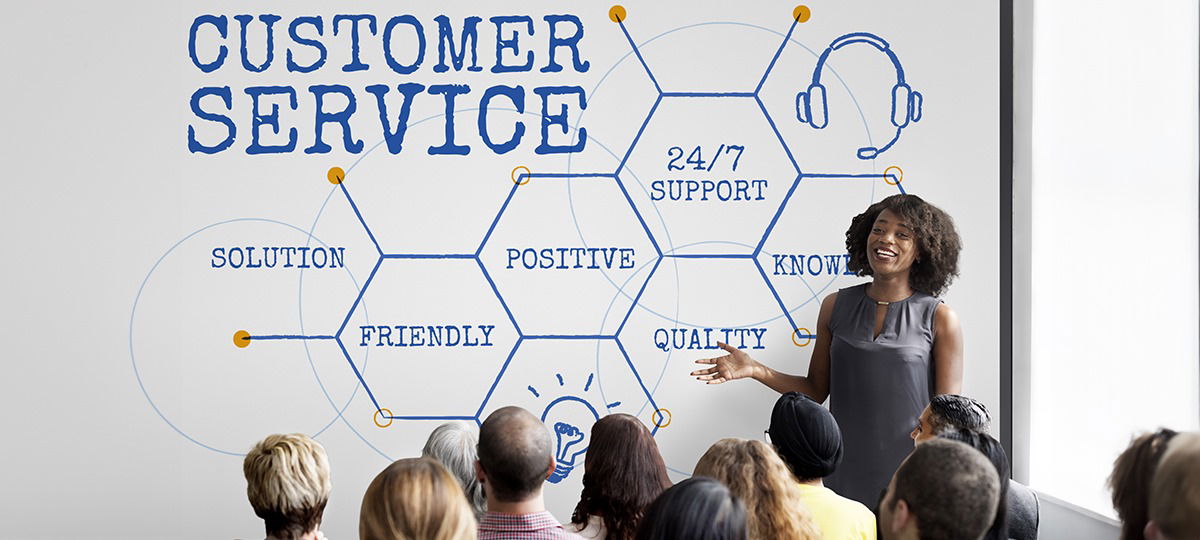Turning Service into Success with Advanced Client Support Skills
In a marketplace where every interaction counts, excelling in customer service is a game changer for fostering loyal client relationships. Companies that go the extra mile in equipping their teams with customer support training often see a significant edge in market success. This blog delves into how advanced client service skills can dramatically improve customer interactions, paving the way for lasting and rewarding connections.
Understanding Customer Support Training
Customer support training is a crucial aspect of developing advanced client service skills. It equips professionals with the knowledge and techniques required to handle complex customer interactions effectively. By investing in comprehensive training programmes, employees can gain the necessary expertise to handle diverse customer needs and exceed expectations consistently.
The Role of Client Relationship Management
Client relationship management plays a vital role in enhancing customer interactions. Client relationship management platforms enable businesses to efficiently manage client information, track communication history and streamline workflows. Client relationship management systems empower professionals to provide personalised experiences by understanding customer preferences, previous interactions and specific requirements.
Effective Customer Interaction Strategies
To enhance customer interactions for long-term relationships, professionals should adopt effective strategies that go beyond basic service standards
Active listening
Active listening involves paying undivided attention to customers and demonstrating empathy towards their concerns or issues. It helps build trust and ensures that customers feel valued throughout their interaction.
Clear communication
Clear communication is key to avoiding misunderstandings or confusion. Professionals should convey information concisely, using simple language while avoiding jargon or technical terms that could confuse customers.
Problem-solving skills
Advanced client service skills include strong problem-solving abilities. Professionals should be proactive in identifying customer issues and providing prompt solutions that align with their needs.
Adaptability
Each interaction with a client can be unique, requiring professionals to adapt quickly based on the situation at hand. Adaptable professionals can adjust their approach to meet individual customer preferences and foster a positive experience.
Emotional intelligence
Emotional intelligence is crucial for understanding and managing the emotions of both customers and oneself. Professionals with high emotional intelligence can handle difficult interactions with tact, empathy and professionalism.
Harnessing Technology for Improved Customer Interactions
Technology plays a significant role in enhancing customer interactions. Here are a few ways technology can be leveraged:
Live chat support
Utilising live chat support on websites allows customers to connect with businesses instantly, resolving queries or concerns promptly. This real-time interaction enhances customer satisfaction by providing immediate assistance.
Personalised email marketing
By leveraging customer data stored in customer relationship management systems, businesses can create personalised email marketing campaigns tailored to individual interests and preferences. This targeted approach results in higher engagement and fosters long-term relationships.
Social media engagement
Active engagement on social media platforms enables businesses to connect with customers directly, providing quick responses to queries or feedback. This transparent communication builds trust and strengthens relationships.
The Benefits of Advanced Client Service Skills
Adopting advanced client service skills comes with several benefits for both businesses and professionals:
Increased Customer Satisfaction
When customers feel well-served, they are more likely to remain loyal to a business over the long term. Satisfied customers also become brand advocates, spreading positive word-of-mouth recommendations.
Higher retention rates
By consistently delivering exceptional service experiences, businesses can reduce churn rates and retain valuable clients. Long-term relationships lead to repeat business opportunities and increased revenue streams.
Securing Future Success by Elevating Client Relationships with Expert Training
Enhancing client interactions through advanced customer support training is essential for building strong and lasting relationships. By investing in comprehensive training programmes, leveraging client relationship management systems, adopting effective strategies, harnessing technology and prioritising customer satisfaction, businesses can thrive in today’s competitive market.
If you want to enhance your skills in customer service, consider enrolling in a client service training course offered by Imarticus Learning. Visit our website today to explore our comprehensive range of professional courses.



